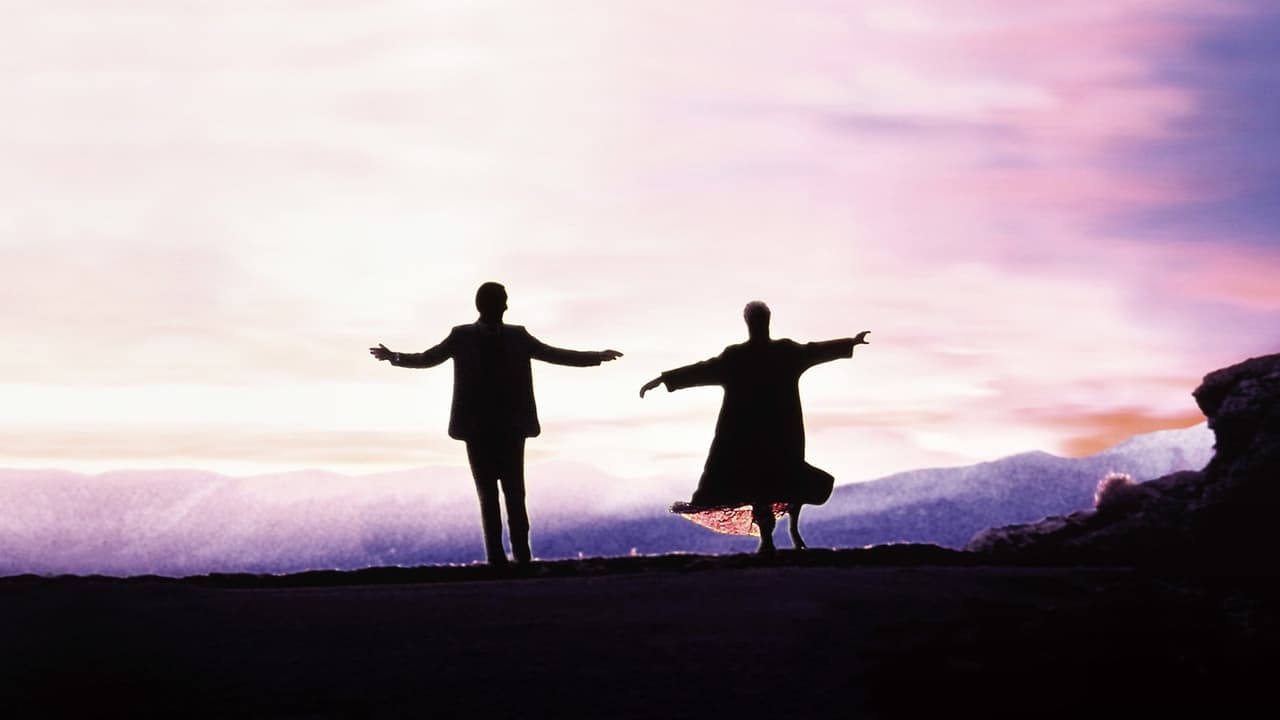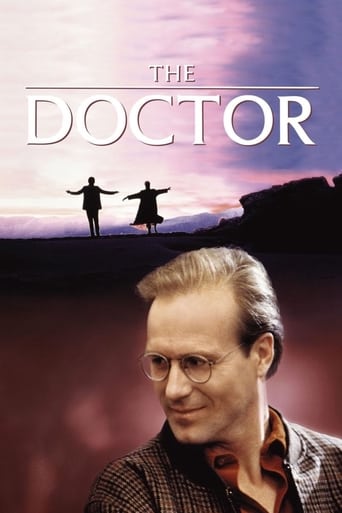



An Exercise In Nonsense
A lot of perfectly good film show their cards early, establish a unique premise and let the audience explore a topic at a leisurely pace, without much in terms of surprise. this film is not one of those films.
View MoreEach character in this movie — down to the smallest one — is an individual rather than a type, prone to spontaneous changes of mood and sometimes amusing outbursts of pettiness or ill humor.
View MoreThe plot isn't so bad, but the pace of storytelling is too slow which makes people bored. Certain moments are so obvious and unnecessary for the main plot. I would've fast-forwarded those moments if it was an online streaming. The ending looks like implying a sequel, not sure if this movie will get one
View MoreWilliam Hurt is the happy-go-lucky heart and lung surgeon forced to swallow a bitter pill when he develops a malignant tumor in his throat and suddenly has to face the same impersonal treatment he prescribes for his own patients. The film works best when charting his frustration while looking down the wrong end of the stethoscope, but elsewhere Doctor Hurt's internal struggle toward a more compassionate bedside manner is conveyed through soggy domestic melodrama, with an unnecessary digression into the Nevada desert outside Reno for a pas de deux with terminal brain tumor patient Elizabeth Perkins. The script could easily have been trimmed by twenty pages; it would have been more effective (and certainly more concise) without the predictable marriage crisis. But under Randa Haines' direction the film is, thankfully, more sensitive than sentimental, with a totally convincing (and all too familiar) medical background and a first rate cast to recommend it.
View MoreSan Francisco surgeon--irrepressible in the operating room, inappropriately 'cute' around his sick patients, and a stranger to his wife and child--discovers he has a cancerous growth on his vocal chords. Screenwriter Robert Caswell, adapting the book "A Taste of My Own Medicine" by Ed Rosenbaum, M.D., clumsily sets the tone for this drama in his opening sequence: while performing an operation, doctor William Hurt clears his throat roughly, causing fellow medic Mandy Patinkin to look up with concern. This telegraphs the audience (in a puny, melodramatic way) that's something amiss, however the scope of the piece does improve tremendously in the picture's second act. The characters are not immediately clear, and the performances by Hurt, Christine Lahti (as his neglected spouse), and Elizabeth Perkins (as a cancer patient) suffer as a result. Hurt, in particular, is hard to get a grip on for the first two-thirds; for a film about personal redemption, he certainly takes his time learning to grow. Sub-plots regarding Hurt's relationship with his son, his friendship with Perkins, and a malpractice suit generally fare quite poorly, yet director Randa Haines knows exactly where she wants to take this movie emotionally--and she does eventually bring it across the finish line with moving results. **1/2 from ****
View MoreThis film truly caught my attention, I just watched on TV, and was really impressed. Why? well, we could say that there probably are a lot of these films (almost a sub-genre within drama movies) when regarding to the tone, characters, existential conflicts and ideal-moral messages but I think this one stands aside. The story is very simple, the acting is great but realistic, the film is shot in a very classical style, the conflicts are there, my point is that despite we (as an audience) have all the elements at the surface, this film runs more deep and has more layers than it seems at first sight. The true power or engine here is the script, which hides beneath the great cast and wonderful directing, it allows us to think a predictable-known story in a symbolic (and political) way, opening a lot of cognitive doors that can take us apart from the plain meaning to different new levels of thinking these very same elements.For instance, we have a "doctor" who is actually tortured by the burocratics politics of the very same hospital he works for, and finds himself becoming, first a patient, afterwards something less than human (although not like Kafka's Gregor) because of the medical protocol doctors tend to follow. Also, he meets a woman who was sentenced to die by her medical insurance company (another Kafka theme, the destiny or conviction taken upon ourselves). So he ends up discovering the truth of his reality and himself, waking from his dream-death (as an institutionalized being) reforging his identity and humanity. It's interesting to find here two important's elements such as the mythological way of understanding living as a dream and death as life, like a new state of mind only perceived after dying; and second, the battle the hero in modern days fights for, his self-independency. This is obviously a political allegory against the powers that rules our lives and fates, and can-must be thought in any other line of work, but got to admit that gains another dimension by being themselves DOCTORS, and not caring at all about us, just only money motivated like a sales man would. The Doctor is much more complex and I hope people would give this film a chance, it's the exact opposite and in my opinion a future reference to what any medical(TV or film) story should aim for.p.s.: Mike Nichol's Regarding Henry it's in a similar level than this one.
View MoreThe Doctor is a film that really touches you without being too weepy. It's the way doctors along the world think until... something happens and they find themselves on the other side. William Hurt is great as The Doctor. The desperation on his face when he finds out that from now on he'll be a cancer patient is unique and authenticque. But the film is not only for this doctor. It's about the community of doctors. It's about a closed profession that will hardly accept anyone else. Doctors have their own way of seeing things and that's obvious in the film. They are those who know what comes next and that's even more frightening for them. Dr. Blumfield is someone who's been banished from that special community for "daring" to see the side of a patient. The transformation of Dr. Jack McKee is a miracle that rises through his own sickness and his "patient-mate" is an angel in disguise to help him through. The whole story verifies what people say:"doctors are the worst patients ever" and that's because they experience the ultimate fear, considering that they have the knowledge. The film illustrates all of the concerns of The Doctor so beautifully and with such realism that's hard not to like it. I don't know about the general audience, but I do strongly believe that every Medical Doctor should see it.
View More